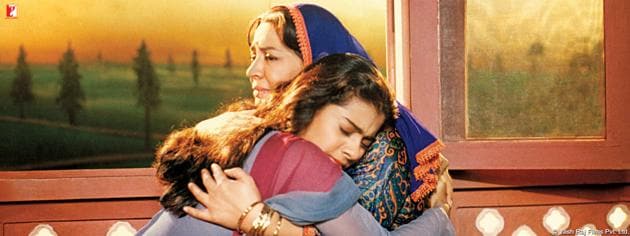Blurring the lines: Anupama Chopra on movie scenes that move us
Cinema can sometimes echo your soul, be a friend and a guide
In the last hour of Richard Linklater’s Boyhood, there’s a scene that pierced my heart. Patricia Arquette (who won an Oscar for her performance as Olivia), is sitting at the dining table as her son Mason Jr. picks up the last few things and heads out to college. She starts weeping. When he asks what’s wrong, she says angrily that it’s the worst day of her life. She says that her life has been just a series of milestones – marriage, divorce, master’s degree and next will be her funeral. She then pauses and adds, “I just thought there would be more.” I saw the film in London with my teenage son. He was bored but I wept copiously. That specific fusion of resentment, hurt, ache, emptiness that a mother feels as a child grows up had been rendered so accurately that it felt like Linklater and Arquette had photographed the deepest recesses of my being.

Film has the power to do that. I’ve never had a similar response to painting or a piece of music. But cinema, which contains all the other arts, can echo your soul. In an essay on The Graduate in The Guardian, director Marc Webb (500 Days of Summer, The Amazing Spider-Man) wrote: “I think great films are not simply a diversion. Great films can recreate and articulate emotions that feel – until we see them onscreen – too confusing to talk about. Too private and deep to say aloud. When a movie cracks that for me, it becomes a friend. A warning. A guide. A conversation piece. A prism through which we can view our own experience. It’s like a voice from the ether that whispers: You are not alone.”
Admittedly this doesn’t happen often. A majority of films are disposable industrial products that momentarily deflect or amuse or engage. And I’m not dismissive of that. We need the entertainment and the escapism – as the film director John L. Sullivan, in the Preston Sturges classic Sullivan’s Travels put it – “There’s a lot to be said for making people laugh. Did you know that that’s all some people have? It isn’t much, but it’s better than nothing in this cockeyed caravan.”
But the most memorable movies do more – they distill the essence of our lived experience. Often it’s not entire movies but stray scenes. I remember having that same how-did-you-know-me-so-well feeling when I watched the mother-daughter scene in Dilwale Dulhania Le Jayenge (it was the emotion in the situation rather than the situation itself of a mother asking her daughter to sacrifice her love) or the banter between friends in Dil Chahta Hai. And then there was that one moment in Zoya Akhtar’s Zindagi Na Milegi Dobara in which Hrithik Roshan, Farhan Akhtar and Abhay Deol, mimic the iconic Doordarshan tune and talk about how it made them sad because it signaled the start of the Sunday feature film, which also meant the end of the weekend. That was a snapshot from my childhood. When I saw it, I felt exactly like the food critic Anton Ego in Ratatouille when he tastes the eponymous dish and flashes back to his mother’s cooking.
I live for these voices from the ether. Which is why I’m always at the movies.




